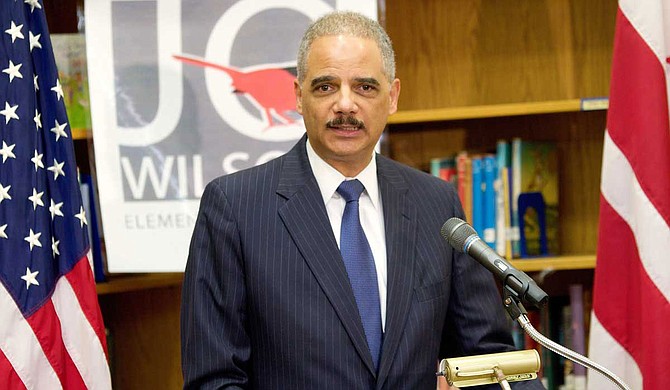African American plaintiffs sued Mississippi in 2019 in an effort backed by former U.S. Attorney General Eric Holder. They argued that the state's multistep process unconstitutionally violates the principle of one person, one vote. Photo courtesy Department of Education
JACKSON, Miss. (AP) — Mississippi voters might get a chance to purge a Jim Crow-era provision from the state constitution and simplify the process of electing the governor and other statewide officials.
Legislators are close to agreeing on House Concurrent Resolution 47. It would put a proposal on the ballot this November, letting people decide whether to erase an Electoral College-type provision from the state's 1890 constitution. The proposal says that a candidate who wins a majority of the popular vote would win a statewide election. If nobody receives a majority in a race with three or more candidates, the top two would go to a runoff.
The Mississippi Constitution currently requires a statewide candidate to win a majority of the popular vote and a majority of electoral vote. One electoral vote is awarded to the candidate receiving the most support in each of the 122 state House districts. If no candidate wins both the popular vote and the electoral vote, the race is decided by the state House. But, representatives are not obligated to vote as their districts did — and that means arm-twisting could decide the outcome of an election.
Mississippi is the only state with this multistep process for electing a governor. The process was written when white politicians across the South were enacting laws to erase black political power gained during Reconstruction. The separate House vote was promoted as a way for the white ruling class have the final say in who holds office.
African American plaintiffs sued Mississippi in 2019 in an effort backed by former U.S. Attorney General Eric Holder. They argued that the state's multistep process unconstitutionally violates the principle of one person, one vote. Plaintiffs’ attorneys said Mississippi’s history of racially polarized voting means that candidates preferred by black voters must receive a higher share of the statewide vote to win a majority of House districts.
Days before Mississippi elected statewide officials in November, U.S. District Judge Daniel P. Jordan III wrote that he has “grave concern” about the constitutionality the electoral vote provision. Jordan wrote that the plaintiffs’ argument about violation of one person, one vote is “arguably ... their strongest claim.”
The plaintiffs’ attorneys argued that the Mississippi system for electing statewide officials is similar to a Georgia county-unit election rule that was invalidated by a federal court ruling in 1963.
“They’re right,” Jordan wrote.
Jordan noted that Mississippi’s election provisions “are not merely statutes that can be revised in one legislative session; they are constitutional provisions that require amendment.” Jordan put the lawsuit on hold in December, saying he would give legislators a chance to remedy the system.
That's where the proposed constitutional amendment comes in. Legislatures must put the question on the statewide ballot, and adopting an amendment would require a simple majority of votes.
That last time a governor's race was thrown to the Mississippi House was 20 years ago. Nobody received the required majorities in a four-person race for governor in 1999. The top two candidates were white, and each won 61 electoral votes. In January 2000, House members chose Democrat Ronnie Musgrove, who had received the most votes, over Republican Mike Parker. At the time, the House was controlled by Democrats. It is now controlled by Republicans.
Some Democrats thought the electoral provision might come into play in a tight 2019 governor's election, but Republican Tate Reeves easily defeated Democrat Jim Hood and two lesser-known candidates.
Copyright Associated Press. All rights reserved. This material may not be published, broadcast, rewritten, or redistributed.



Comments
Use the comment form below to begin a discussion about this content.
comments powered by Disqus